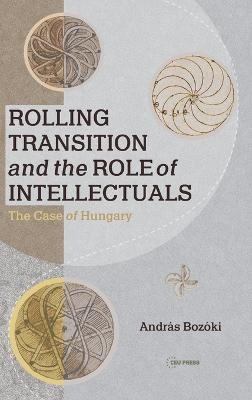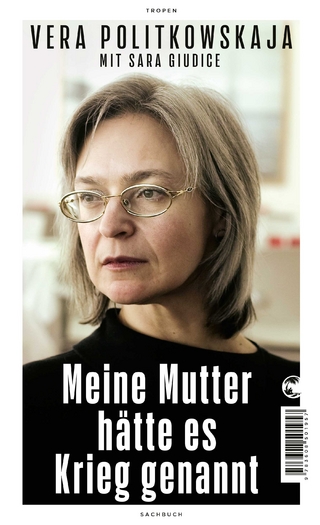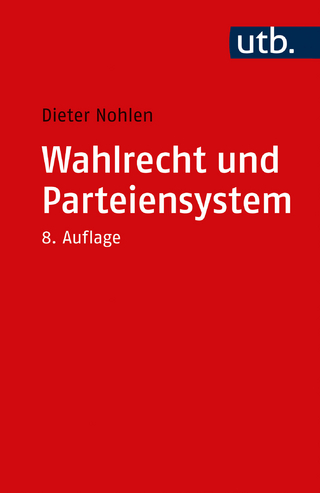
Rolling Transition and the Role of Intellectuals
Central European University Press (Verlag)
978-963-386-478-4 (ISBN)
Bozóki argues that the Hungarian intellectuals did not become a ‘New Class’. By rolling transition, he means an incremental, non-violent, elite driven political transformation which is based on the rotation of agency, and it results in a new regime. This is led mainly by different groups of intellectuals who do not construct a vanguard movement but create an open network which might transform itself into different political parties. Their roles changed from dissidents to reformers, to movement organizers and negotiators through the periods of dissidence, open network building, roundtable negotiations, parliamentary activities, and new movement politics.
Through the prism of political sociology, the author focuses on the following questions: Who were the dissident intellectuals and what did they want? Under what conditions do intellectuals rebel and what are the patterns of their protest? This book will be of interest to students, researchers, and public intellectuals around the world aiming to promote human rights and democracy.
András Bozóki is Professor at the Department of Political Science at the Central European University. His main fields of research include democratization, de-democratization, political regimes, ideologies, Central European politics, and the role of intellectuals
List of Tables
List of Figures
Abbreviations
Acknowledgments
Introduction
Chapter I. The Role of Intellectuals: Theories and Interpretive Frameworks
1. Who are the intellectuals?
1.1. Conceptual approaches
1.2. Classical theories of intellectuals
1.3. Theories of the New Class
1.4. Modern theories of intellectuals
2. Intellectuals and social movements
3. Intellectuals and politics in Central Europe
Chapter II. The Political Context: Censorship and Co-optation
1. Censorship and the press in the late Kádár era
1.1. The practice of controlling the press
1.2. Mechanisms of informal control
1.3. The collapse of selective repression
2. Strategies of co-optation: “Intelligentsia-policy” in the one-party system
2.1. Celebrities, seigneurs, confidents, and his “court”
2.2. Reformers, civilian groups, and sympathizers
Chapter III. Dissident Intellectuals: The Culture of Critical Discourse
1. Opposition groups
1.1. The flowers of decay
1.2. The rise of samizdat
2. The dissidents between state and society
3. The topics of the samizdat journals
3.1. Moral politics
3.2. The question of national minorities
3.3. Churches and peace activism
3.4. Environmentalism
3.5. Cultural criticism
4. The historical memory of the democratic opposition
4.1. Revolution, retribution, and capitulation
4.2. Anniversary celebrations
4.3. Central Europe rediscovered
4.4. The taboos fall: The situation of minorities
4.5. Alternatives in economic policy
4.6. The perceptions of normality
4.7. Historical memory
5. The debate of the Beszélő circle on strategy
5.1. Perspectives of the future
5.2. Political goals
5.3. The possible ways of change
Chapter IV. From Moral Principles to Political Action
1. The ideas of the dissidents
1.1. Humanization of power
1.2. Antipolitics
1.3. Disobedience
1.4. Civil society
1.5. Human rights
2. The identity of the democratic opposition
3. Open network-building and party formation
3.1. Forms of organization
3.2. The rhetoric of crisis
Chapter V Regime Change and Elite Change
1. Patterns of transition: Poland and Hungary
2. Elite change: The rise of reform intellectuals and the technocracy
2.1. Reform economists
2.2. The ideology of modernization
2.3. The technocracy
3. The Roundtable talks as elite settlement
3.1. The rediscovery of elite theory
3.2. Three theories of post-communist elite change
4. Co-optation, cooperation, contestation
Chapter VI. Negotiated Revolution: The Strategy of the Opposition
1. The meaning of the Roundtable talks
2. From model change to regime change
2.1. Tactical maneuvers
2.2. Preparatory talks between the Opposition Roundtable and the MSZMP
2.3. The reburial of Imre Nagy
3. Constitution-making at the National Roundtable talks
3.1. The structure of the talks
3.2. Shifting positions
3.3. Major steps forward, limited results
4. From the referendum to the free elections
5. Imagined democracy: Fundamental values
5.1. Freedom and popular sovereignty
5.2. Representative democracy
5.3. Nonviolence
5.4. Broad consensus
5.5. Back to Europe!
6. The past revisited: Historical references
6.1. The revolutionary tradition
6.2. The tradition of institution-building
6.3. Break and the new beginning
Chapter VII. Intellectuals as Legislators
1. Who were they and what did they want?
2. The opposition parties which grew out of dissident subcultures
2.1. The Hungarian Democratic Forum
2.2. The Alliance of Free Democrats
2.3. Parallel tendencies
2.4. The Federation of Young Democrats
2.5. The Democratic Confederation of Free Trade Unions
3. The historical parties
3.1. The Independent Smallholders’ Party
3.2. The Hungarian Social Democratic Party
3.3. The Hungarian People’s Party
3.4. The Christian Democratic People’s Party
3.5. The Bajcsy-Zsilinszky Friendship Society
4. The “mass party of professionals”: The MSZMP
Chapter VIII. Interpreting Democracy: The New Movement Intellectuals
1.The types of intellectuals arriving in politics
1.1. Intellectuals to be professional politicians
1.2. Mission, sense of duty, brooding: The intellectual politicians
1.3. Quick retreaters
2. Movement-intellectual politics after 1989: The Democratic Charter
2.1. The opinion leaders
2.2. Background of the formation of the Democratic Charter
2.3. From need to movement
2.4. A “gentle power”: Events of the Democratic Charter
2.5. The decline of the Democratic Charter
3. The participants of the Democratic Charter
Chapter IX. Rolling Transition: Rotating Agency
Co-author: Ágnes Simon
1. Periods and actors
2. Activities and participants
3. Model of the rolling transition
3.1. From beginning to the end (1977–1994)
3.2. Period of dissent (1977–1987)
3.3. Period of open network-building (1988)
3.4. Period of Roundtable negotiations (1989)
3.5. Period of parliamentary politics (1990–1991)
3.6. Period of new pro-democracy initiatives (1991–1994)
4. Continuity and discontinuity
4.1. Circulation of elites and continuity
4.2. Continuity and discontinuity within the national assembly
4.3. Continuity and discontinuity between the Roundtable talks, and the democratically elected national assembly
4.4. Continuity and discontinuity in the waves of activism
5. The end of transition
Conclusion
Bibliography
Interviews with some participants of the transition
Index
| Erscheinungsdatum | 16.08.2022 |
|---|---|
| Zusatzinfo | 14 Figures; 28 Tables, black and white |
| Verlagsort | Budapest |
| Sprache | englisch |
| Maße | 152 x 229 mm |
| Gewicht | 993 g |
| Themenwelt | Sozialwissenschaften ► Politik / Verwaltung ► Politische Systeme |
| Sozialwissenschaften ► Politik / Verwaltung ► Politische Theorie | |
| Sozialwissenschaften ► Politik / Verwaltung ► Vergleichende Politikwissenschaften | |
| ISBN-10 | 963-386-478-X / 963386478X |
| ISBN-13 | 978-963-386-478-4 / 9789633864784 |
| Zustand | Neuware |
| Haben Sie eine Frage zum Produkt? |
aus dem Bereich


